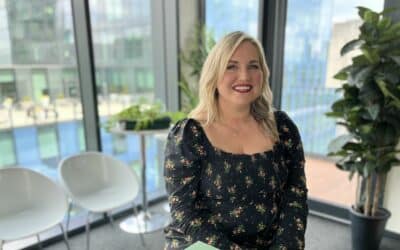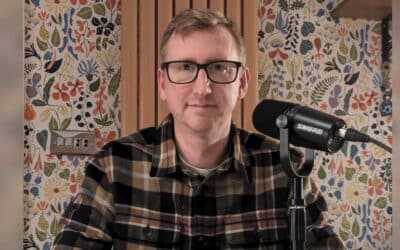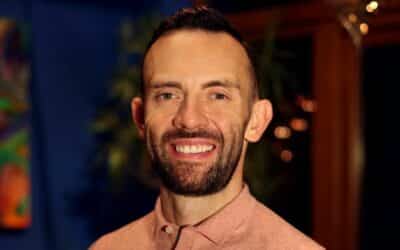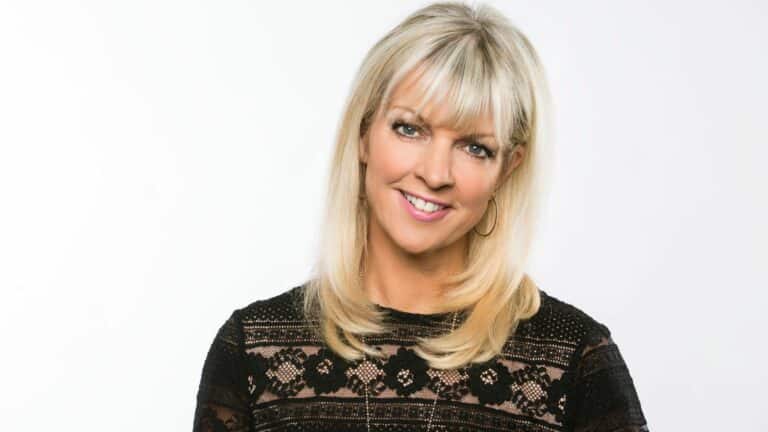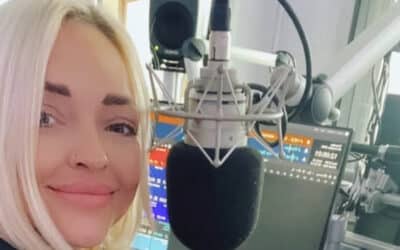In the wake of BBC local radio cuts and a shake-up of local radio schedules, the corporation faced backlash from avid listeners and a long-running union dispute with staff.
After the BBC announced it would streamline its local radio services, with some evening and weekend programming being replaced by regional or national programming, former BBC English Regions controller Andy Griffee said the shake-up would be “gradually destroying the essential point of BBC local radio, which is its localness and the attachment people have to particular communities,” in a post on X (Twitter) in 2023.
And he wasn’t the only person to voice concerns. Nick Wilmshurst, former BBC journalist in the North who took voluntary redundancy in 2023, told Prolific North that the shake-up spells the “end” of local radio in some ways.
But those behind The Late Show, the BBC’s ‘all England’ programme, are keen to showcase how the programme is doing everything it can to engage listeners across the country.
The programme, first airing in October 2023, goes out across all 39 BBC local radio stations in England covering celebrity interviews, stories from ordinary people and a diverse range of topics every Monday to Thursday, with weekends hosted by Jo Good.
And who better to front the weekday programme than Becky Want, a seasoned Northern broadcaster?
“I hope that the programme, even though it’s an ‘all England’ show, is local in tone. That’s what we’re trying to do. We’re trying to serve everybody but still with a personal touch,” Becky Want, host of The Late Show, tells Prolific North. More on that later.
But broadcasting wasn’t always the first career choice for Becky. Born and raised in Stockport, at a young age she was a “little show off” with big dreams of being an actor.
Compromising with her parents, she was the first person to go to university in her family, studying drama at the University of Bristol. Very quickly, she realised it wasn’t the “right world” for her and subsequently did a subsidiary course in radio and television.
Post university, she applied to 15 television channels in the hopes of becoming a researcher but was rejected from every single one. After a spell at hospital radio and a stint at Signal radio in Stoke, her sights were still firmly set on working for Piccadilly Radio despite an initial rejection.
“Piccadilly reconsidered and took me on for the early breakfast show, five to seven in the morning. I was part of what they call the B team, the breakfast team, doing traffic and travel. It was the biggest mixed news and entertainment station outside the capital and there was nothing really else to listen to, so it was huge.”
Five years later, she eventually landed a role at Granada after cajoling head of regional programmes, Stuart Prebble, every Friday afternoon for around six months.
“In the end he said: ‘look, I think you’ll be very good as a presenter but I can’t take any more of those Friday afternoon phone calls, so just come in.”
Persistence, it seems, has always paid off.
“That’s been my whole career over nearly 40 years, just jumping up and down, stamping my feet, battering on doors and just being a general pain in the bum!
“I do just look at it and go: ‘God, how lucky am I that all these years later, I’m still doing what I love?'”
Why The Late Show was developed and redundancy
With plenty of changes to local radio and television over the years, she admits she has had to face her fair share of uncertainties, previously presenting for BBC One, BBC local radio, ITV, and Granada TV.
“It’s like riding a wave. I had all my eggs in one basket when I was at Granada. I was at a station called Granada Breeze, a magazine programme in the afternoon doing two-hour shows, five days a week. I loved it. Then a meeting was called and it closed. We were all made redundant.
“I’ve had times when I’ve been out of work. I’m not cynical, I just know that changes happen as much as we don’t like change. I don’t like change, changes will happen, and you ride with them, you try and see the new opportunities because there will always be a new opportunity. But sometimes you can’t see the wood for the trees. That’s what I try and do.”
Clearly passionate about the importance of local radio, she reflects on why the BBC developed the ‘all England’ programme and how she first landed the role.
“Obviously, this was nothing to do with me. It’s way above my pay grade! BBC Local looked at the way the audience was going and what the audience were wanting and it was increasingly digital. But that meant merging The Late Night show. That was the decision that was taken.”
Out of the blue, she was called in for a meeting about presenting the new show.
“This long career of mine has always been local or regional, it was Piccadilly Radio, Radio Manchester, Granada Television. So it’s always been about Manchester and the North West region.
“Suddenly, at this late stage which I love as you’re never too old, they said we want you to do a network show across England and the Channel Islands.
“Really, you want me? I thought, this is brilliant for women of my age. You should never say never.”
“Give it a chance”
Occasionally, Becky has to deal with disgruntled listeners, initially uneasy about the new show and what it means for the future of local radio. But, she urges: “give it a chance”.
“Try it. This wasn’t my decision, was it? The vast majority of presenters, if a boss had come to them and said ‘would you like to do a network show’ they probably would have said yes.
“I get a lot of messages. Last night, one listener said: ‘I wasn’t happy about this, I didn’t think you’d be able to do it but I’m really glad I gave you a try. I really enjoy it and I wouldn’t be without you at night.’ I get those a lot.”
Another listener from Somerset, unhappy about the changes, now sees the programme as ‘we all go about our business during the day and at night, we all come together and discuss how our day has been’.
“I thought, what a beautiful way of describing what I am trying to do. You’ve had your day, let’s all come together, how was it for you?”
Nine months in, although it has been a “whole new experience” for the Manchester-based presenter, she describes it as her “dream programme” where listeners can expect stories that you “perhaps won’t hear anywhere else”.
You might find Becky chatting to celebrity guests from Sex Pistols punk rocker John Lydon to leading actor Keanu Reeves on the show, to stories of ordinary people who have “done extraordinary things to be where they are” such as the Met Police’s first openly gay, Black officer to Britain’s ‘greatest’ fraudster.
“Every single night, there is somebody who is ordinary who has done this extraordinary thing. They’re not famous people, they’re just people who have got great stories to tell.”
Now that the show is in full swing, one of the programme’s features is called ‘The Road Trip of My Life‘ where a high-profile guest takes them to location of their choosing with a vehicle of their choice.
“There’s a bit of theatre around it,” she explains. “They choose a place which means something to them and they choose the music, which transports them back to a particular place and time in their life.”
The most recent guest was former Emmerdale star Kelvin Fletcher, who has since swapped the glamorous world of soaps for farm life.
Down on this amazing farm in Lincolnshire #Farm24 Listen out from 10pm on your #BBCLocalRadio #Bulls #MuckSpreading 😊 pic.twitter.com/U0kL2iBNs3
— Becky Want (@BeckyWant) August 8, 2024
Last week was also the first time The Late Show has ventured out of the studio for an outside broadcast, with Lincolnshire as its first destination.
“It’s really, really exciting,” she says. “As part of a national campaign called Farm Watch, this is really getting to grips with what it’s like to be on a small working farm and the challenges for farmers in this day and age. That’s what we try and do with the show.
“It’s a real flavor of the real life of someone who lives in our country.”
When it comes to the tricky task of engaging all listeners across the country, she’s all ears and loves how “vocal” listeners are about what they want to hear on the programme.
“I hope what we’re doing is something that is different from what you would get on Radio 2 or 5 Live, or anywhere else, because it really is an open door. It’s me saying: ‘Right, where are you? How’s your day been?’ Get in touch with me, WhatsApp me, text me, email me, phone me, send me a voice note, whatever it is.”
Whether it’s asking listeners for the highlight of their day, opening discussions about the recent riots – it’s “over to you” as a listener. And Becky pays attention to every message that comes into the show.
“I read every single message that comes to me in the studio. That’s how I think that we are offering something different.”
With more outside broadcasts hopefully on the horizon, on what’s next for the show she wants to “take the show out” more, meeting people right across the UK.
“I want to get out around England. I want to go back to the Isle of Wight, the Channel Islands or Newcastle and have a night out. Every single night, we just have new voices from around the country. It’s fantastic just to hear people who say: ‘Becky, I’m with you’ and they are from every different region.
“We don’t shy away from the tough stuff at all, but you try and have a laugh, have a smile, because, you know? That’s what life’s about.”
You can tune into Becky Want’s show, every Monday to Thursday, here.

